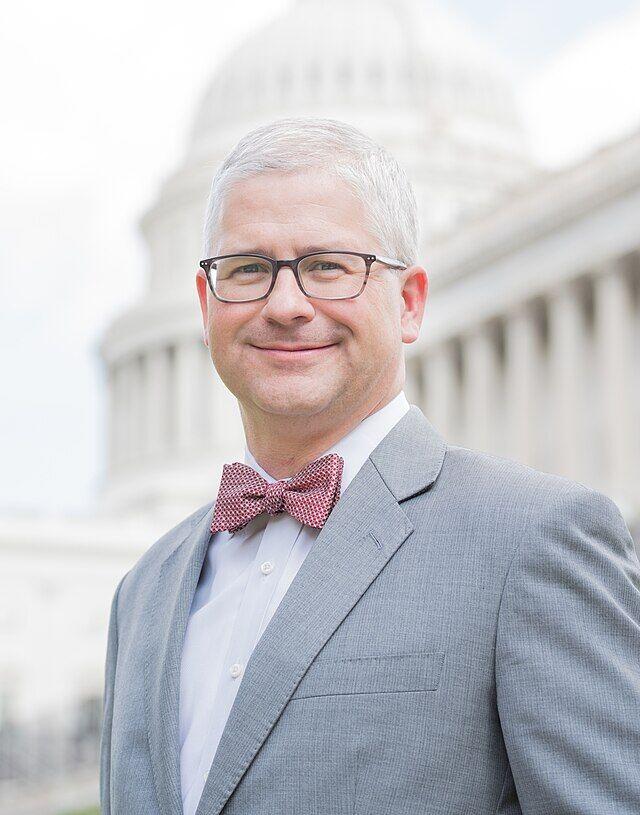In a historic turn of events, North Carolina representative and former NC State student Patrick McHenry has assumed the role of speaker pro tempore following the Oct. 3 ousting of former House Speaker Kevin McCarthy.
McHenry’s role as speaker pro tempore is an interim position and will last until the House picks its permanent leader. For McHenry, known for his colorful bow ties, this position is the most prominent he has held in his ten terms in the House of Representatives.
A Republican, McHenry represents North Carolina’s 10th district, encompassing Hickory and Mooresville and is chair of the House Financial Services Committee. McHenry was a student at NC State before transferring to and graduating from Belmont Abbey College.
Andrew Taylor, professor of political science, had McHenry as a student at NC State in his first year of teaching at the University 28 years ago.
Taylor said McHenry’s new, unprecedented position was created to ensure a clear line of succession in case the speaker and his allies were to be vacated or harmed. Considering it’s a new role, Taylor said the extent of his power is unclear.
“He was named the interim speaker because after the legislation following 9/11, the sitting speaker had to have a list of replacements should the chair be vacated, and that’s of course what happened,” Taylor said. “McHenry was at the top of the list. He’s been known as a kind of McCarthy supporter, he sort of lobbied for the votes to get McCarthy elected … it’s not really clear what he can do beyond trying to get a permanent speaker elected.”
Michael Struett, chair of political science at NC State, said he believes a factor in McHenry’s priority on McCarthy’s list is his contentedness with his role in the party and his lack of ambition for the speakership role.
“McHenry is a well-regarded officer within the Republican Party — he’s a serious player,” Struett said. “I suspect he was chosen in part because he doesn’t have ambitions to be speaker of the house. He’s somebody who had been talked about that role before, but basically declined the opportunity to pursue a leadership position in the caucus in the last couple of cycles, and he seems content.”
McCarthy’s ousting was the first time a motion was made to vacate a speaker since 1910, and the first time such a motion was successful. Without a speaker, the House of Representatives cannot vote on legislation.
Struett credits McCarthy’s historic ousting to the growing polarization within the Republican party, which currently holds the majority in the House.
“If you’re going to be a political party in the House of Representatives, the normal thing is you decide things internally,” Struett said. “As long as you can stay together, it means the Republican Party can dictate terms. But the fact of the matter is, the Republican Party is not all together; they have a range of different views of all kinds of issues, and frankly, they have some extremists who are mostly in it for their personal aggrandizement.”
A band of eight Republican representatives, led by Matt Gaetz, R-Fla., voted to oust the speaker along with support from the Democratic Party. Republicans cited growing frustrations with McCarthy’s willingness to compromise with Democrats for his removal, particularly concerning a temporary federal spending bill to prevent a government shutdown Oct. 1.
Two weeks after McCarthy’s ousting, the Republican Party has yet to decide on a nominee for the speakership role. House Republicans went as far as to nominate Rep. Steve Scalise after a secret-ballot election Oct. 11, but were unable to secure a majority vote of 217 to win on the House floor. The House is back where it began.
Taylor said the Democrats are capitalizing on the inability of the Republican Party to elect a speaker.
“‘Republicans can’t govern. They’re divided, they’re useless, put us in charge’ — that’s basically the message that they’re sending,” Taylor said.
Struett said he believes while unlikely, it is possible a few moderate Republicans will break with their party and elect House Minority Leader Hakeem Jeffries, D-N.Y., to the speakership position if the struggle is to continue up to the impending budget deadline.
“The Democrats seem fairly united around choosing Hakeem Jeffries as their candidate and speaker, all you need is four or five, centrist Republicans, maybe six or seven or 20 would be safer [to elect Jeffries],” Struett said. “If they were to decide to work with the Democratic Party and create a sort of coalition government, there’s nothing to prevent that in the rules of the House.”
As time draws closer to the next budget deadline, eyes are on former NC State student McHenry to facilitate functionality within the House.













